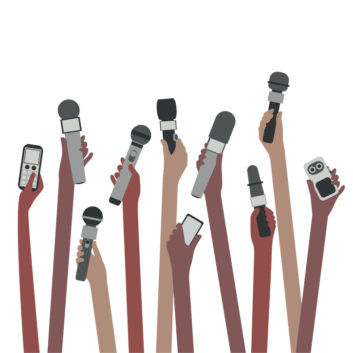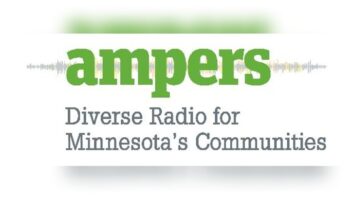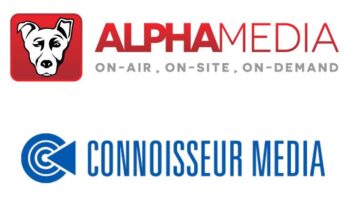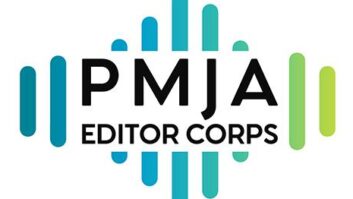 The Multicultural Media, Telecom and Internet Council recently sent wrote to the acting chairwoman of the Federal Communications Commission with “seven compelling initiatives” that it said the FCC could take to advance diversity and inclusion in mass media.
The Multicultural Media, Telecom and Internet Council recently sent wrote to the acting chairwoman of the Federal Communications Commission with “seven compelling initiatives” that it said the FCC could take to advance diversity and inclusion in mass media.
It noted that the FCC was the first federal agency to require its licensees to practice employment nondiscrimination, but continued: “At no time since 1968 has it been more important that the FCC immediately affirm that it cares about issues of racial justice … The FCC’s long and malodorous history of minority exclusion should both haunt and motivate all of us. … It is not uncommon for the agency to take 10 or 20 years, or more, to act on a proposal to advance opportunities for multicultural communities and consumers.”
This text is excerpted.
- Access to more competitive technical facilities. Broadcasting has been the heritage technology for minority media entrepreneurs, and minority broadcasters have been the voices and conscience of their communities. Yet minority broadcasters generally must compete while using inferior technical facilities, such as AM daytimers, lower-powered outlets and stations unable to cover the full market due to the transmitter’s location in a distant suburb or exurb.
Within the administration’s first year, the commission should act on a host of pending proposals that would advance minority broadcast ownership, including granting an FM booster rule change that would authorize FM radio geo-targeting; creating a new station class (“C4”) that would double the power of hundreds of small FM stations; and repealing the “Rural Radio Policy” that needlessly deprives small broadcasters of the opportunity to improve their signal coverage.
- Correct the Deficiency in the Radio Incubator Program. In June 2021, the commission established the Radio Incubator program. However, the program has one deficiency: Incubation of a station in a geographically vast but sparsely populated market with 45 stations would entitle the incubating company to a local ownership cap or subcap waiver in very large markets.
The commission should [allow] … incubation waivers only in similar-sized markets.
- Ubiquitous Equal Procurement Opportunity. In 1992, Congress directed the FCC to create the Cable Procurement Rule to ensure that businesses owned by women and minorities would have a fair chance at winning major contracts. The regulation yielded solid results and drew no opposition. …
The commission should issue an NPRM in a fast-track new general docket, encompassing the industries regulated by the Wireline, Wireless and Media bureaus, and propose equal procurement opportunity across all FCC-regulated industries that is modeled after the Cable Procurement Rule.
- Tax Certificate and Tax Credit. There is widespread recognition that the 1978–1995 Tax Certificate Policy was by far the most effective vehicle for advancing minority broadcast ownership. In its 17 years of operation, the policy quintupled minority broadcast ownership. Another desirable tax initiative, tailored for small businesses, would provide that a company donating a station to a training institution (e.g., an HBCU or HSI) would receive a tax credit equal to the station’s value.
The commission should request that Congress restore and improve the Tax Certificate Policy and create a tax credit for donating a station to a training institution.
- Include Diversity, Equity and Inclusion Impact Statements in all rulemakings of general applicability. …
What gets measured gets done. The commission should seek comment looking toward adoption of a universal policy where every rulemaking of general applicability will contain a Diversity, Equity and Inclusion Impact Statement.
- Ubiquitous Equal Employment Opportunity. In the first decade of FCC EEO jurisprudence, and under the leadership of Chairman Richard E. Wiley and Commissioner Benjamin L. Hooks, 14 cases were designated for Section 309(e) evidentiary hearings over evidence of employment discrimination. Yet despite the continuing prevalence of low minority representation in influential broadcasting jobs, the commission has not brought a single discrimination prosecution since 1994.
The commission should conclude its 23-year-old broadcast EEO proceeding and start to prosecute licensees that recruit new employees primarily by word of mouth to the friends and family members of their homogeneous staffs … Further, the commission should consider several additional broadcast EEO regulatory reforms that are fully pled and endorsed by 44 national organizations, and ready for adoption. …
- Universal Access to Multilingual Emergency Information. Since Hurricane Katrina in 2005, MMTC and the League of United Latin American Citizens … have repeatedly asked the commission to ensure that basic, lifesaving information in widely spoken languages such as Spanish will be available in the wake of a Category 4 or 5 hurricane that could take down the electric and wireless grids. … It is simply unconscionable that a person’s lack of English fluency can become a matter of life or death in an emergency situation. …
Read the full letter in PDF form at https://tinyurl.com/rw-mmtc-now.







